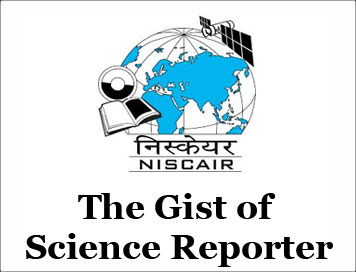(HOT) UPSC Current Affairs 2025 PDF
NEW! The Gist (NOV-2025) | E-BOOKS
(GIST OF SCIENCE REPORTER) CAR-T CELL THERAPY
(GIST OF SCIENCE REPORTER) CAR-T CELL THERAPY
(APRIL-2025)
CAR-T CELL THERAPY
India’s first CAR-T cell therapy trial results were recently published in the prestigious medical journal The Lancet. The therapy showed promising results, with nearly 73% of patients responding positively to the treatment.
Key Highlights
-
This is the first Indian CAR-T cell therapy clinical trial to be published in an international medical journal.
-
The cost of this therapy is just 1/20th of the cost of globally licensed CAR-T therapies, yet the effectiveness is comparable.
Success Rate:
-
73% response rate among patients.
-
Patients with acute lymphoblastic leukemia survived an average of 6 months without disease progression.
-
Patients with lymphoma survived an average of 4 months without progression.
-
The therapy is especially important for patients who have not responded to previous cancer treatments.
Side Effects Observed
Though effective, the therapy is not without risks. Some serious side effects were recorded during the trial:
-
Hemophagocytic lymphohistiocytosis (HLH) – seen in 12% of patients.
-
A severe immune reaction where immune cells get hyper-activated, causing inflammation and potential organ damage.
Other side effects included:
-
Anaemia – 61% of patients
-
Thrombocytopenia (low platelets, risk of bleeding) – 65%
-
Neutropenia (low white blood cells) – 96%
-
Febrile neutropenia (neutropenia with fever) – 47% Note: These patients were already very ill and had exhausted other treatment options.
What is CAR-T Cell Therapy?
CAR-T cell therapy is a revolutionary form of immunotherapy that uses the body’s own immune system to identify and destroy cancer cells, especially in certain types of blood cancer.
How It Works – Step by Step:
-
T-Cell Collection: The patient’s T-cells (a type of white blood cell that fights infections) are collected from their blood.
-
Genetic Modification: These T-cells are genetically modified in a lab to create chimeric antigen receptors (CARs) on their surface. These receptors help the T-cells recognize and attach to cancer cells.
-
Multiplication: The modified T-cells are then multiplied in large numbers in the lab.
-
Infusion into Patient: The new CAR-T cells are infused back into the patient’s body.
-
Attack on Cancer: These modified cells can now effectively hunt down and destroy cancer cells that would normally evade detection.
CLICK HERE TO DOWNLOAD FULL PDF
CLICK HERE TO DOWNLOAD UPSC E-BOOKS
Study Material for UPSC General Studies Pre Cum Mains
Get The Gist 1 Year Subscription Online
Click Here to Download More Free Sample Material
<<Go Back To Main Page
Courtesy: Science Reporter



